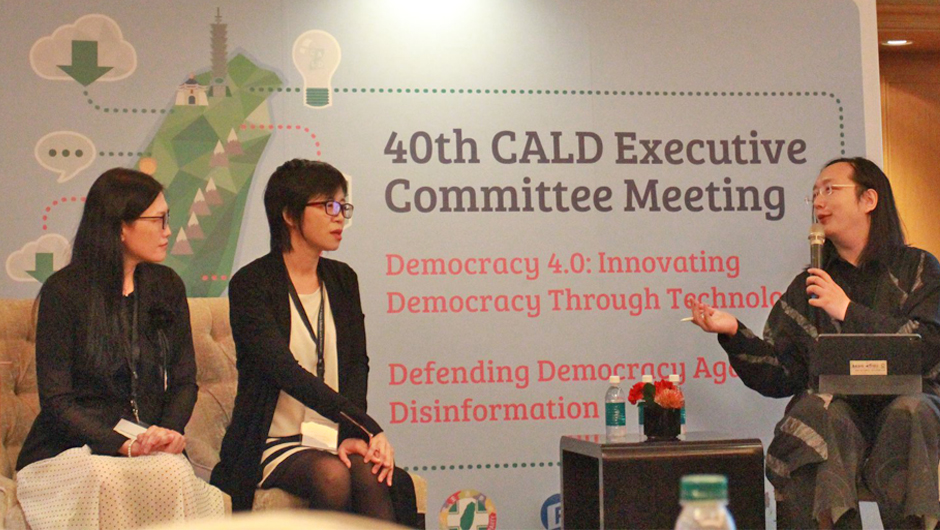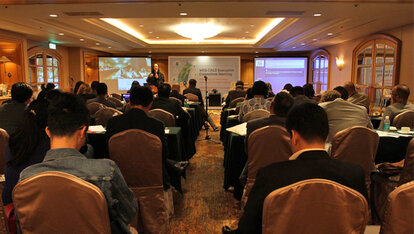Political innovation requires radical transparency

Audrey Tang (right) with one of the winning groups of the Presidential Hackathon
Audrey Tang has been Taiwan digital minister for three years. In this period, she has hosted 1000 meetings, met with 4,500 people, and had 200,000 talks – all recorded on the internet as part of her policy of radical transparency.
Tang shared that anyone can come and visit her at her office, but the meeting transcripts have to be available online. “Through this new way of mechanism design where discussions are published, instead of individuals or groups lobbying for their private interests, which is what would happen without radical transparency, they would have to argue for public interest,” said Tang.
“The idea of open government, collaboration meetings, and radical transparency is to involve citizens as co-designers of service to the people. It is at the root of Taiwan’s new way of building effective partnerships, and where people that have different positions in society, gradually come to common values,” she added.
Tang was the keynote speaker at the political innovation forum organized by the Council of Asian Liberals and Democrats (CALD), hosted by the Democratic Progressive Party (DPP) of Taiwan, with the support of the Friedrich Naumann Foundation for Freedom (FNF) on 19 October 2019 in Taipei.
Trust citizens
Before representatives from RELIAL, the Liberal Network for Latin America, African Liberal Network (ALN), and the Arab Liberal Federation (ALF), Tang also stressed that “government must show plenty of trust to the citizens.”
“We must create a space for conversation so that we can respond to new social developments without over relying on the old hierarchical way,” advised Tang. She noted the many competing interests in politics that have made pushing for an agenda time-consuming and complex.
“People often think of liberal democracies as essentially organized by party leaders. With the advent of mobile computing and, most importantly, hashtags, this metaphor is very quickly outdated. Now, people can get horizontal support in no time through crowdfunding and crowdsourcing,” explained Tang.

Social innovations
The forum in Taipei included a presentation of one of the winners of Taiwan’s Presidential Hackathon. An app for terminal patients who opt to remain at home impressed the audience because of its artificial intelligence features. The participants also toured the city’s Social Innovation Lab, a venue for idea incubation and innovation to address the United Nation’s Sustainable Development Goals (UN SDGs).
“If we look around the world today, what we see are authoritarian regimes mastering the use of new technology and trends to further their objectives of oppressing the population. For us as liberals, we need to become better. We need to accept this challenge, and start innovating ourselves,” said Armin Reinartz, Head of FNF Global Innovation Hub who joined the forum via virtual reality.
“The openness of democracy to diverse and innovative ideas is what would make it survive in this era of authoritarianism, illiberalism, and populism. Further, technology can transform democracy by making citizens front and center of the political process,” remarked CALD Executive Director Lito Arlegue.